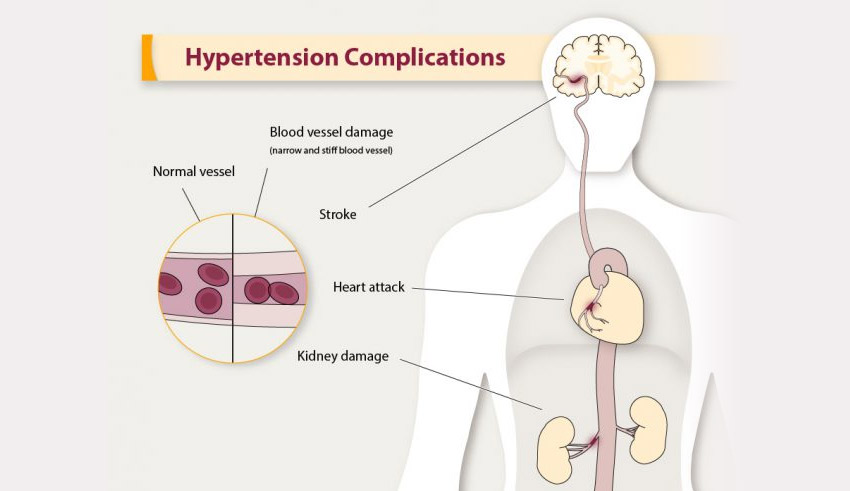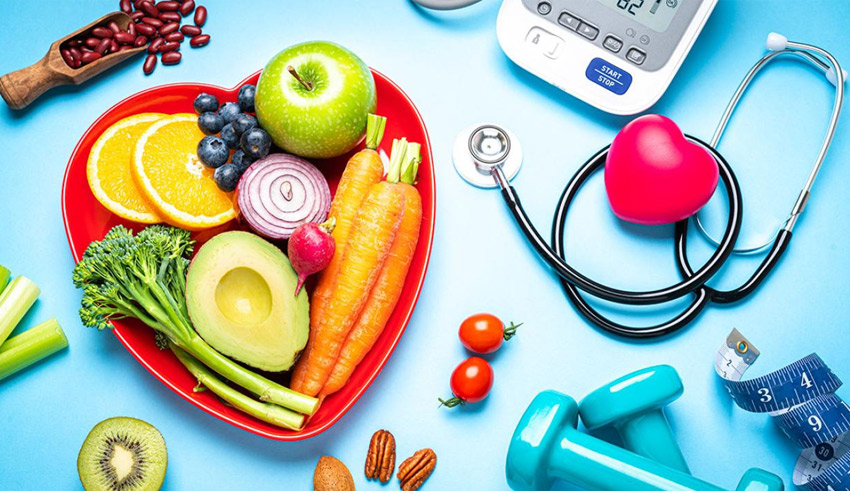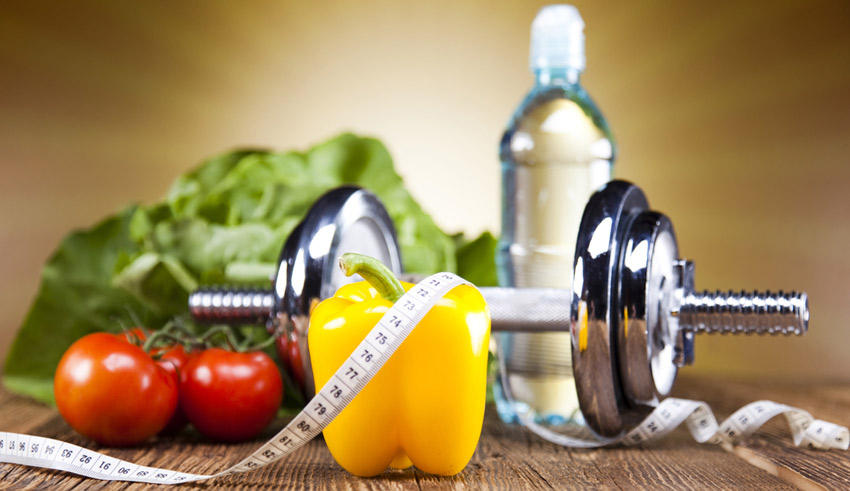How to Control Resistant Hypertension
Age and lifestyle plays a huge role in how our health turns out. Those who are aware of the risks of having an unhealthy and sedentary lifestyle make effort to keep themselves from harm’s way. But those who don’t, suffer the consequences over time.
Research has suggested that a drastic change in lifestyle could play a huge role in battling resistant hypertension. One must be able to let go of unhealthy habits that would not only benefit them mentally, but physically as well.
Asim Hameedi, an expert Interventional cardiologist from New York, shares his insight into the changes that could benefit people who suffer from resistant hypertension.
What Is Hypertension?
Hypertension, also known as high blood pressure, is a medical condition that keeps your blood pressure higher than normal at all times.
Our blood pressure changes throughout the day based on the activities we carry out. Having a blood pressure that is constantly high could lead to the diagnosis of hypertension. Despite being taken lightly by most; the medical condition has severe side effects that could turn into consequences if the correct route of treatment is not adhered to in time.
Cardiovascular diseases and strokes are common among patients of resistant hypertension. These diseases can not only affect the quality of life and health one is in at the time but could also, in some cases, be fatal.
With a constant rise in the use of technology, non-invasive cardiology as well as interventional cardiology is now common which makes treatment for these diseases easier than ever. This makes treating hypertension and the issues that follow suit easier, but the best route to take about hypertension would be a complete shift in one’s lifestyle.

Causes Of Hypertension
There are a lot of causes of hypertension. Some causes are self-inflicted while others are hereditary.
The most common cause for hypertension is being obese. There is a certain weight limit that is set for an average human being, beyond which he or she can be deemed unfit/unhealthy/obese. The body of an obese individual holds a lot of fat, in a concentration higher than required by the body.
Now, being obese can be a combination of both unhealthy eating habits and a sedentary lifestyle which means that both of these are contributors to hypertension as well.
Intake of alcohol could also be a cause of hypertension. 1-2 drinks per day is ok, beyond could be detrimental to one’s health.
Too much salt in one’s diet could also cause persistent hypertension. Stress and genetics are two factors that have been found to play a huge role in hypertension. Stress increases hormones in the human body that temporarily raise the heart rate. This is how the blood pressure also increases. In case of genetics, one could carry the gene if they have a history of hypertension in their family.

Is There a Permanent Fix for Hypertension?
Sadly, there is no cure for hypertension. It is a chronic disease that persists throughout one’s life. After one has been diagnosed, one can follow different steps and medications to keep the problem under wraps.
If there isn’t a proper care from the patient, the health condition is likely to escalate which could result in a stroke or a cardiovascular arrhythmia.
For this reason, a lifestyle change is vital for a hypertensive patient so that the disease can be controlled and stopped from progressing to a point of no return. One must be willing to make the changes required to live a healthy life.
Doctors have stated that medicinal care paired with a lifestyle change is the only way to deal with the health conditions such as hypertension.

Why A Lifestyle Change Is Important?
A lifestyle change is important when you’re aware that your medical condition has a chance of getting better if you make slight tweaks to the way, you are living your life. I am a huge supporter of lifestyle change to counter resistant hypertension.
Your lifestyle not only defines your mental health but plays a huge role in impacting your physical health as well. An ideal lifestyle would be a well-rounded one that caters to every requirement of the body and mind. Conditioning yourself into thinking that you need a healthy lifestyle might be the only way for you to add more years to your life, or else you might have to say goodbye!
The general idea regarding a healthy lifestyle is that you must balance all aspects of your life and should not over indulge in anything. But that is actually far from the truth. A healthy moderate lifestyle allows you to enjoy all the goodness life has to offer as long as you keep a check on those calories and keep active.
Eating healthy and exercising is the first step towards living a sustainable life. Being a patient of resistant hypertension, you may have to make these small tweaks that could significantly improve your health and would take you away from the risk that comes with a medical condition, like hypertension.
Lifestyle Interventions That Will Help
Following are the lifestyle changes that are definitely important for you if you are trying to keep an eye on your blood pressure and want to prevent it from escalating.
1- Lose Those Extra Pounds – Keep an Eye on Your Weight
Being overweight or obese is the major contributor to your high blood pressure. If you are hypertensive, you definitely need to watch your weight.
What we often overlook as just some extra pounds often end up being the reason of various health conditions, especially those that are persistent, such as hypertension. Being overweight raises your blood pressure automatically, heart has to supply blood to a larger area.
Another effect that it has which plays a significant role in affecting one’s blood pressure is sleep apnea. Sleep apnea is generally caused by obesity. Essentially, sleep apnea is difficulty breathing during sleep. Not being able to breathe puts the body under stress which affects the functioning of other organs. This induces an influx of hormones in the body which raises the heart rate, which in turn increases the blood pressure of the individual.
Losing the extra weight is the most significant life changing steps ever for a hypertensive individual. Not only would it put your limbs to work, but it would also control the fat stored in your body while getting rid of the amount your body doesn’t need.
Doctors all around the world have agree that if a person loses up to one kilogram of weight, they could control their blood pressure level by 1 mm Hg (millimeter of mercury). One is not expected to make sudden huge changes, because such changes do not last for long, rather, it is suggested that you should achieve your weight loss goal gradually.
You should start by aiming for at least 30 minutes of brisk walk every day. Alongside, plan your meals beforehand. Your meals should have a balanced amount of protein, fiber, carbohydrates, and fat. All these portions should be measured according to your body’s need, keeping in mind you are trying to lose weight.
One good way to know if you’re crossing your weight healthy weight range is to keep an eye on your waistline. For men, the waistline should be less than 41 inches and for women, it should not be greater than 35 inches. If it is beyond this healthy range, you should start looking at a diet plan and your running shoes.
Something that has recently been highlighted in health journals is that blood pressure and its rise could differ for different ethnic groups. It has been noted that African Americans, and especially males, are at a higher risk of getting this medical condition. For this reason, it is advised that these individuals keep an eye out on their blood pressure.
2- Consume A Diet That Is Low in Sodium
It is so important to understand the role sodium plays in blood pressure fluctuation.
For a better understanding, consider your body a vessel. When too much salt (which is the main source of sodium) enters the vessel, you would need a lot of water to push it forward and get it out. This water is what causes the blood pressure to rise.
It is important that one intakes a diet that is low in sodium. Patients are often found to complain about tasteless food if it is made without salt but there is now low-sodium salt available in the market. This salt is made especially for hypertensive patients to allow them to use salt while also keeping an eye on the amount of sodium they are consuming.
A hypertensive patient should limit their intake of sodium to 1,000-1,500 mg per day. By consuming only this amount, there is a likelihood of lowering down one’s systolic blood pressure by 5 mm Hg to 6 mm Hg.
Studies have shown that reducing intake of sodium starts lowering a patient’s blood pressure within 4 weeks of this change.
One thing that could help you making this lifestyle shift would be reading food labels. Most of us often pick items up at the supermarket without reading the food labels. If you do so, there is a huge chance you could identify products that are high in sodium and avoid picking them up. Look for alternatives that are low on sodium which means that they have a lower salt content.
3- Put Your Glass Down – Limit Your Alcohol Consumption
When it comes to alcohol, it can be a tricky situation. There are different studies that suggest different results for the consumption of alcohol. But through interventional cardiology as well as non-invasive cardiology, different things have been discovered.
Consuming alcohol while having an elevated level of blood pressure could have both a positive as well as a negative effect.
Now you may be thinking, positive, how? Well, it’s easy. Studies have found that consuming a moderate level of alcohol can help decrease the blood pressure by 2 mm Hg or 3 mm Hg. The limit that has been set by medical health professionals is one glass a day for women and two glasses a day for men.
Anything consumption beyond this level will have adverse effect on one’s health. It would directly affect the blood pressure levels of the body and the goodness of alcohol will turn into a nightmare. Consuming too much alcohol is otherwise also not healthy for the body, but being hypertensive and consuming large amounts of alcohol could be especially damaging for the body.
Alcohol has also been found to play a huge role is making the body immune to the medication that is taken for blood pressure. The efficacy of the medicine is countered by the high levels of medication found in the body. It could also lead to a severe reaction between the medicine and the alcohol within the body, which could be fatal in worst case scenario.
4- Caffeine – The Silent Killer
Caffeine ‘s impact varies from person to person. Many people are found to have an increased level of blood pressure after consuming a cup of coffee while on others it may have no impact at all.
In people who are affected by caffeine, it is seen that the blood pressure rises by 10 mm Hg after consuming it once. This could have an adverse effect on them and could take hours, and in some cases even days, to stabilize the blood pressure level.
To check how caffeine impacts your blood pressure, check your BP and then consume a cup of coffee. After 30 minutes of consumption, check your blood pressure again. If it has risen, you would know that you are from the lot that is affected by caffeine. It would usually rise from anywhere between 5 mm Hg to 10 mm Hg.
5- Don’t Take Stress – The Ultimate Change
We cannot stress enough (no pun intended) on how important it is to reduce stress.
Stress, especially chronic stress, plays a huge role in elevating your blood pressure. One must be able to identify when they are stressed. The situation further spirals down when one starts consuming unhealthy amounts of food or alcohol.
There are different reasons why one might be stressing out. Try focusing on the reasons why you are stressed out and how you can tackle it more effectively. Talking to a therapist always helps. If you cannot, systematically approach all problems, and try to look for well thought out and rational solutions.
If the stressors are not manageable, try to look for healthier ways to deal with them. Don’t sulk in a corner rather try to make out ways how you can cater to the issue that is persisting. This would not only put your mind at ease but would also help you in keeping you blood pressure levels under check and balance.
If you find yourself in such a situation, there are a few things you could do.
- Avoid people, areas, and topics that would induce stress or anger in you. Such an emotional imbalance could directly affect your blood pressure.
- You should be willing to change your expectations according to the need of the hour.
- Don’t waste time focusing on what is beyond your control. Rather focus on things that you can manage. Ask for help, if you feel the need and if possible.
- Meditate and exercise. Studies have found that meditating and exercising for even a short period of time could drastically improve your mood.
There is definitely a lifestyle change needed for those who wish to keep track of their rising blood pressure. If you need help you can contact me in the New York City area as below. Seeking out medical professional help is always beneficial in the long run and helps you in dealing with the problem in a more effective and systematic manner.
Hypertension is incurable but it is manageable. Try changing your habits, then relax, sit back and enjoy a healthy life.
